Each summer there are plenty of opportunities for continuous professional education in public health. This post presents a selection, an overview of what we could find on the web quickly. If you know of a Summer School on Public Health Topics that is not on this list, please post the information below.
The Observatory Summer School
http://theobservatorysummerschool.org/edition-2017/
Sunday 23 July – Saturday 29 July 2017
The course takes place on the island of San Servolo, one of the most beautiful and awe-inspiring islands of the Venice lagoon.
The six‐day course includes formal teaching but has at its core the experiences of participants in practice. A highly participative approach emphasises group work that cuts across themes, participant presentations, round tables and panel discussions. It mobilises the latest evidence and a multidisciplinary team of experts with a track record in the analysis, implementation and evaluation of person‐centred health systems. Course participants will also be able to share perspectives with and gain insights from key international organisations including the World Health Organization, the European Commission and relevant professional, governmental and civil society organisations and to engage in political dialogue with senior policy makers. They will be part of the Summer School tradition, which fosters evidence‐based policy‐making and encourages European health policy debate by raising key issues, sharing learning and building lasting networks.
Annual ECDC Summer School
30 May to 2 June in Stockholm, Sweden.
The goal of the ECDC Summer School is to strengthen the mentoring and technical skills of both ECDC experts and experts within ECDC networks, such as fellowships’ supervisors, by providing an opportunity for networking and scientific exchange on methods for communicable disease prevention and control.
The ECDC invites experts form the EU networks (e.g. Fellowship Training Supervisors) to participate to the Summer School. The school is usually closed for external participants.
Diagnostic data for dummies: The untapped potential of data re-use, Rotterdam, the Netherlands
https://rotterdamsummerschool.com/
9 July 2017 - 12 July 2017
Health care professionals are building up data collections as part of their practice. Smart re-use of these data supports diagnosis and treatment of patients. These data could also be a basis for research and prevention. Furthermore, pooling data with collegues can take health care and prevention to a next level. This summer course provides you with practical knowledge and skills to get the best out of your data sets. You will learn to use state-of-the-art data analysis and visualization tools, while issues such as security, privacy and ethics will be addressed.
Future of Public Health in the Post-2015 World, Finland Kuopio
https://www.uef.fi/en/web/summerschool
14-24 August 2017
This Summer School will cover the following topics:
- Tracking the Sustainable development goals
- Future of non-communicable diseases
- Ageing populations and public health
- Public health nutrition
- Public health in humanitarian crises
- Contemporary environmental aspects of public health
- Sociocultural aspects of public health, health inequalities
- Population health promotion: examples from real life
- Health care systems as sites for public health progress
- Applying epidemiology for public health problem solving
Population and public health, London, UK
https://www.ucl.ac.uk/prospective-students/study-abroad-ucl/summer-school
3-21 July 2017
This module will provide an introduction to definitions used in population and public health, basic theories, and conceptual frameworks linking major determinants of health with a range of individual and population health outcomes.
It will provide an introduction to the history of population health. The role of London in public health research will be explored and the basic measurements of outcomes and risk factors used in public health, and data sources used in population health, will be introduced.
Monitoring and Evaluation of Public Health Programs: Systems Approaches and Techniques, Italy
http://www.biostatepi.org/
12 June 2017 - 17 June 2017
This course introduces methods and tools necessary for monitoring and evaluating public health programs during routine public health activities as well as during large scale emergencies and public health crisis. The course will use the case based teaching method developed by the Harvard Business School and examples from the ebola outbreak, recent water crisis and other types of events to describe how evaluation methods can be used to inform public health decision making. The range of topics includes: evaluation planning, survey development and validation techniques, assessment of modern and rapid testing methods; an overview of various methodologies and designs for estimating coverage and changes for a region; methods for evaluating sub-regional performance (i.e. the health districts of a region); and comprehensive monitoring and evaluation approaches that allow for both local and regional assessment. Emphasis will be on the practical aspects of design, analysis and presentation. Students will use a public health systems approach to the evaluation of the programs and discuss as a group the consequences of the decisions they make on the implementation and evaluation of specific public health programs.
Public Health, UK, London
http://www.kcl.ac.uk/study/summer/index.aspx
17 July - 4 August 2017
The module will introduce you to public health; an exciting and growing field which is underpinned by a diverse group of disciplines reflecting both the arts and sciences, employing a range of strategies to promote and protect health and well-being. We will look at the evolution of public health specifically in the UK, but also consider how changing global landscape means that boundaries between populations are increasingly less well demarcated. We will explore the key concepts of epidemiology and the broader determinants of health. The complexity around evidence-based practice, policy and politics will also be considered. This module will provide a good foundation for anybody thinking about embarking upon a career in which public health can play a role.
Environmental epidemiology, Utrecht, the Netherlands
https://www.utrechtsummerschool.nl/
19-30 June 2017
The objective of the course is to provide the student with insight in the principles and important issues of environmental and occupational epidemiology. Topics that are covered include time series analyses, assessment of dose-response relationships, use of geographic information systems in exposure assessment, retrospective cohort studies, ecological studies, (correction for) measurement error in exposure and interpretation of studies on mortality (life expectancy versus body counts). Theory will be illustrated by current and emerging topics like climate change and electromagnetic fields.
Screening and epidemiology, Copenhagen, Denmark
http://studies.ku.dk/summer/
14-22 August 2017
Students will be trained in critical assessment of the evidence on (cancer) screening. The course aims to provide a solid introduction to the major concepts, theories and debates relevant to screening, with particular emphasis on early detection of cancer. Emphasis will be placed on understanding the rationale for screening and evaluation of screening outcomes. Finally, the course will provide an overview of the main cancer screening programs that have been implemented in Denmark.
Research methods in health: Biostatistics, Italy
http://www.biostatepi.org/
12 June 2017 - 17 June 2017
This course is designed to provide the student with an understanding of the foundations of biostatistics and of the various statistical techniques that have been developed to answer research questions in the health sciences. Students will be introduced to methods for the comparison of outcome between two groups (t-test and non parametric tests), as well as the extension to the comparison of outcome across several groups (ANOVA); methods for the study of association between two continuous variables (correlation and linear regression); the analysis of contingency tables; the study of survival (time-to-event) data. The afternoon sessions are devoted to discussion and learning to use Stata® to implement materials covered in the morning lectures.
Research methods in health: Epidemiology, Italy
http://www.biostatepi.org/
12 June 2017 - 17 June 2017
This course will explore in greater depth the fundamental epidemiologic concepts introduced in Principles of Epidemiology (Week 1). The course will be taught with an emphasis on causal inference in epidemiologic research. Topics will mainly focus on chronic disease epidemiology, with a special emphasis on practical study design. Epidemiologic examples from major chronic diseases/conditions (e.g. heart disease and cancer) will be discussed. Students will revisit the issues of confounding, selection bias, effect modification, and generalizability in the context of these topics. Lectures will be augmented by workshops to illustrate practical examples in the epidemiologic literature. The material covered in Principles of Epidemiology will be assumed of the students entering this course.
Causal Inference in Epidemiology, Italy
http://www.biostatepi.org/
5 June 2017 - 10 June 2017
Causal inference from observational data is a key task of biostatistics and of allied sciences such as sociology, econometrics, behavioral sciences, demography, economics, health services research, etc. These disciplines share a methodological framework for causal inference that has been developed over the last decades. This course presents this unifying causal theory and shows how biostatistical concepts and methods can be understood within this general framework. The course emphasizes conceptualization but also introduces statistical models and methods for causal effect estimation. Specifically, this course strives to a) formally define causal concepts such as causal effect and confounding using potential outcomes and counterfactuals, b) identify the conditions required to estimate causal effects using Directed Acyclic Graphs (DAGs), and c) introduce analytical methods that, under those conditions, provide estimates that can be endowed with a causal interpretation. Examples of such methods are regression adjustment, standardization and inverse probability weighting.
Effectiveness Research with Longitudinal Healthcare Databases, Italy
http://www.biostatepi.org/
5 June 2017 - 10 June 2017
Large longitudinal healthcare databases have become important tools for studying the utilization patterns and clinical effectiveness of medical products and interventions in a wide variety of care settings. This course will prepare students to identify and use longitudinal databases for their own research. Strengths and limitations of large longitudinal healthcare databases that are commonly used for research will be considered. Special attention will be devoted to nationally representative databases that are critical for comparative effectiveness research. The course focuses on analytic principles and their application to database research. Participants will learn through lectures by experienced faculty and by evaluating published database studies. In computer labs they will learn to implement a database study comparing two medical products in a large healthcare claims database. The project will be conducted using the Aetion platform with an intuitive user interface that does not require any programming skills. The course requires a working understanding of epidemiologic study designs and typical analysis strategies. The target audience consists of researchers working in academia, medical product industry, health plans, government institutions, regulatory agencies, who have access to large longitudinal healthcare databases. They may use such data to evaluate the effectiveness of medical interventions and care patterns, to understand the comparative effectiveness and safety of medical products (drugs, devices), to test the impact of coverage policy changes, or to monitor the outcome of risk-sharing arrangements.
European Public Health in a Globalising World - introducing policy, research and practice from a European healthcare, disease prevention and health promotion perspective, Maastricht, the Netherlands.
https://www.maastrichtuniversity.nl/maastricht-summer-school-2017-courses-tuition-fees
(3-21 July)
The course provides an overview of modern health challenges in Europe and how they are embraced by a variety of stakeholders: policy makers, researchers, practitioners and the
civil society. The course focus on three perspectives: Firstly, health in Europe, hence, what is the health status across the European countries, how do the health systems look like, what is major challenges for individual countries. Secondly, the perspective of European health which focuses on integration and collaboration among Member States within the European Union (EU) and more widely according to the WHO European region. Lastly, European health in a globalised world is assessed. The course combines theory with practice through lectures, tutorials and field visits.
This course consists of 32 class hours divided over 3 weeks. Students earn 6 ECTS credits when they obtain a passing grade.
Creating health literate societies: bridging the gap of inequality, Maastricht, the Netherlands
https://www.maastrichtuniversity.nl/maastricht-summer-school-2017-courses-tuition-fees
(24 July – 11 August)
Health literacy is an important asset for managing health in the 21st century. Health literacy entails the knowledge, motivation, and competency to access, understand, appraise and apply information to make decisions concerning healthcare, disease prevention and health promotion in everyday life to improve quality of life during the life course. People-centred care and co-production of health are new avenues for the future, which demands active citizens and responsive systems. However, recent research has estimated that almost one have limited health literacy and that under-served population groups such as the elderly, less educated people and groups with low socio-economic status are even worse off. Strategic action is needed to bridge the gap.
The aim of the course is to equip students with health literacy leadership skills to play an active role as professionals in creating health literate societies. Students will explore the concept and its application in research, policy and practice. They will gain competency in developing health literacy strategies and programmes in high, middle and low-income countries to bridge the global gap of health inequality. Through the problem-based learning method they will gain knowledge on how to measure health literacy, how to design complex health literacy interventions and how to build health literacy friendly organisations, communities, cities and societies.
This course consists of 32 class hours divided over 2-3 weeks. Students earn 6 ECTS credits when they obtain a passing grade.
Public Health Assets: Mapping and Mobilizing Health Assets, Alicante, Spain
https://etcsummerschool.files.wordpress.com/2017/01/programme_2017.pdf
17-28 July 2017
Organised by the European Training Consortium in Public Health and Health Promotion (ETC-PHHP), this course is held in Alicante, Spain. Central in this 26th ETC Summer School is the perspective of Public Health Assets complementary to the classic needs/deficit approach used in the majority of public health and health promotion programmes. The notion of assets has its origin in Asset Based Community Development (ABCD) and is nowadays often applied as a public health intervention tool. One special aim of this course will be discussing possible connections between Salutogenesis developed by Aaron Antonovsky and the Assets model of health. The aim of the residential Summer School in Alicante is to provide an international and multidisciplinary forum for the exchange of knowledge and skills and opportunities to explore:
- People-environment interaction in relation to the promotion of health and wellbeing (health promotion)
- Internal and external resources and mechanisms that enable people to participate fully in society
- System approaches to create synergy between Salutogenesis and Public Health Assets
The 2-week course opens with a 1-day International Concha Colomer Symposium which is open to a wider audience of local and international professionals and academics with an interest in health promotion or the theme ‘Public Health Assets’. Both theoretical and practical elements of health promotion are included throughout the programme, which is underpinned by an emphasis on participant interaction. This includes field visits to exemplary local programmes and opportunities for sharing knowledge and experiences with international colleagues involved in promoting health in its broadest sense. All participants are involved in preparing a "country presentation" to present to all participants during the beginning of the course and will later engage in developing a project (including a research component) as part of an international multidisciplinary working group.
Meta-Analysis in Systematic Reviews for Food And Feed Related Topics: York, United Kingdom
http://training.cochrane.org/meta-analysis-systematic-reviews-food-and-feed-related-topics-york-united-kingdom
1-2 June 2017
The aim of this course, facilitated by the York Health Economics Consortium (YHEC), is to provide a comprehensive introduction to meta-analysis for systematic reviews of food and feed related topics. Participants will use software to conduct pairwise meta-analysis and meta-regression.
Systematic Reviews and Meta-Analysis: Bristol, United Kingdom
http://training.cochrane.org/systematic-reviews-and-meta-analysis-bristol-united-kingdom
12-15 June 2017
This course is designed for clinicians, researchers, public health specialists and other health care professionals who want to perform and/or critically appraise systematic reviews and meta-analyses. The course predominantly covers systematic reviews of healthcare interventions, with some material being equally relevant to systematic reviews of other topics. Towards the end of the course, special sessions examine issues in systematic reviews and meta-analyses of observational studies and diagnostic test accuracy.
3rd European Summer School in Evidence-Based Public Health, Munich, Germany
4-8 July 2017
http://www.evidencebasedpublichealth.co.uk/
Evidence-based public health is the development, implementation and evaluation of effective programmes and policies in public health through application of principles of scientific reasoning, including systematic uses of data and information systems. This idea, inspired by the concepts of evidence-based medicine is gaining momentum – nationally, as well as internationally.
Following the success of the second European Summer School in Evidence Based Public the third event will return to the Pettenkofer School of Public Health, Ludwig-Maximilians-Universitat, Munich and will be held on July 4th to 8th 2016.
International Summer School - Health Policy & Management, University of Bayreuth, Germany
July 2017
https://www.daad.de/deutschland/studienangebote/international-programs/en/?p=d&s=sk&id=1113
The course Health Policy & Management looks at comparative politics and policy in high-income countries, focusing on European Union member states and North America. It will focus both on the relationship between political and policy-making structures and on health systems and policies. The course will start with basic structural variables and questions about their contemporary relevance: social insurance and national health service systems as well as forms of centralisation and decentralisation in politics. It will then cover the ways in which these basic structures shape conflicts over priorities, structures, services and equity in different policy areas, namely, health care financing reform, primary health care, hospital care, chronic and integrated care, and public health care (prevention and communicable disease control). The basic logic is then applied and extended to the globalisation and Europeanisation of health care by discussing the ways in which the EU does or does not shape European health systems and the impact and regulation of global markets in the context of services, professionals, and patients.
Summer School - "Social Cohesion: Concept, Implementation and Impact Evaluation", Kyrgyzstan
11–18 June 2017
https://armacad.info/summer-school-social-cohesion-concept-implementation-and-impact-evaluation-11-18-june-2017-kyrgyzstan
SIPRI and the University of Central Asia (UCA) are pleased to invite applicants to a summer school on social cohesion in Kyrgyzstan.
Social cohesion has emerged over the last two decades as an important concept in both academic and political discourse. Quality of connections and cooperation between people and groups is essential to stability and development. Social cohesion—convergence across groups in society—provides a structure that helps ensure greater degrees of predictability and certainty in inter- and intra-group relations. While there is no guarantee that all groups within a society will agree on all issues, convergence across groups offers an incentive for groups to coexist as a peaceful society.
The summer school ‘Social Cohesion: Concept, Implementation and Impact Evaluation’ is a capacity-building activity for researchers, practitioners and policymakers in Kyrgyzstan and Central Asia. It is organized as part of the ‘Social Cohesion through Community-based Development’ project implemented in Kyrgyzstan from 2014 to 2017 and funded by the World Bank and the Aga Khan Foundation. The project aims to identify, pilot and build capacity for social cohesion mechanisms in community-driven development approaches.
6th international BfR-Summer Academy on Risk Assessment and Risk Communication, Berlin, Germany
http://www.bfr.bund.de/cm/349/6-th-bfr-summer-academy-flyer.pdf
3 - 14 July 2017
The international BfR-Summer Academy on Risk Assessment and Risk Communication in the area of Food safety will be conducted by highly qualified and experienced BfR-scientists as well as external experts with profound and long standing experience in risk assessment of chemical or microbial risks. The BfR-Summer Academy is intended for the members of staff of your organisations engaged in food and feed safety, who have already experience in risk assessment analysis. The participants will acquire practical risk assessment analysis and gain deeper understanding in risk communication measures. Consequently this BfR-Summer Academy is from professionals to professionals.
European Drugs Summer School, Lisbon, Portugal (No, it is probably not what you think...)
http://www.drugsummerschool.cies.iscte-iul.pt/np4/23/
26 June-7 July 2017
This two-week summer school prepares professionals and students to meet the complex policy challenges that face Europe in the field of drugs. Involving scientific experts from the European Monitoring Centre for Drugs and Drug Addiction (EMCDDA), but also university professors and policy-makers, it provides a multi-disciplinary and inclusive approach to the study of the drug problem in Europe and beyond. As this summer school will give 6 ECTS credits for its courses, students can easily transfer credits to other European universities using the ECTS system. Credits will be attributed formally to post graduate students (Master and PHD), but it is possible to allow undergraduate to use these credits in their home universities.
Summer Courses Global Health, Copenhagen, Denmark
http://globalhealth.ku.dk/studies/summer_courses/
Various courses, all summer long. Deadline 1 April. Read fast and be quick!
The University of Copenhagen's International Summer Programme offers a number of popular global health-related summer courses, which are open to both students and external applicants with an interest in global health issues.
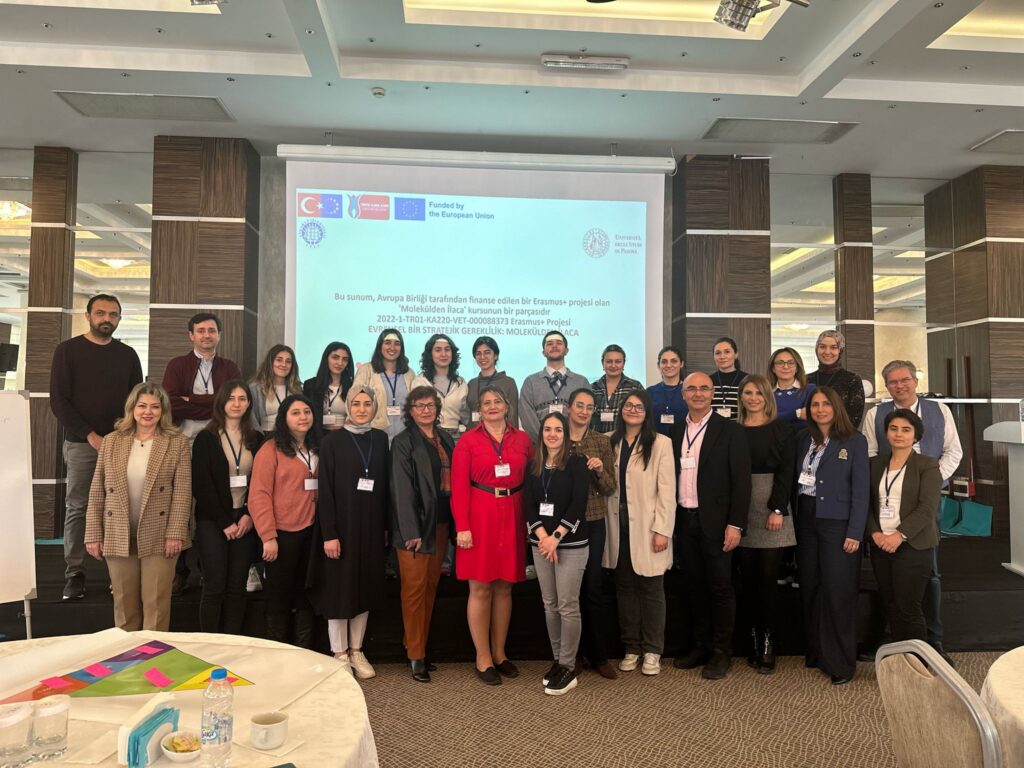
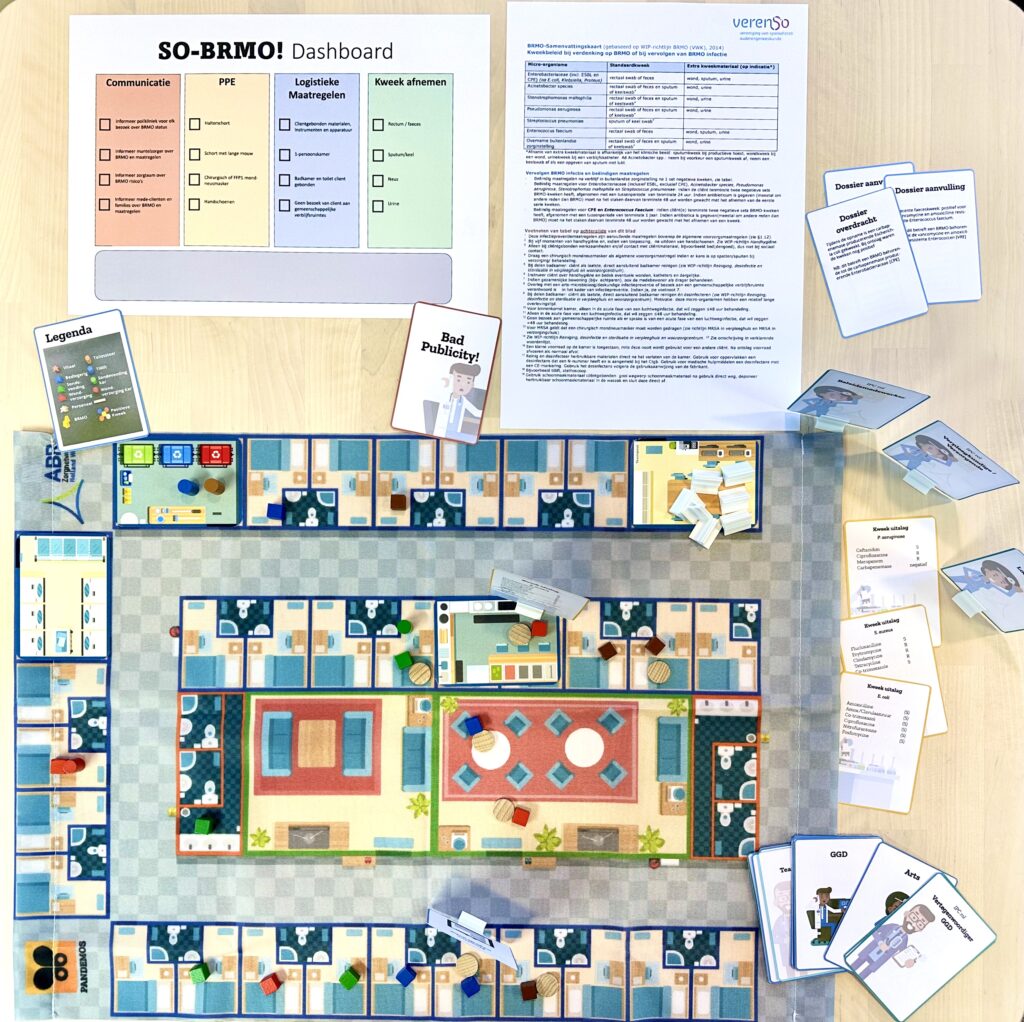
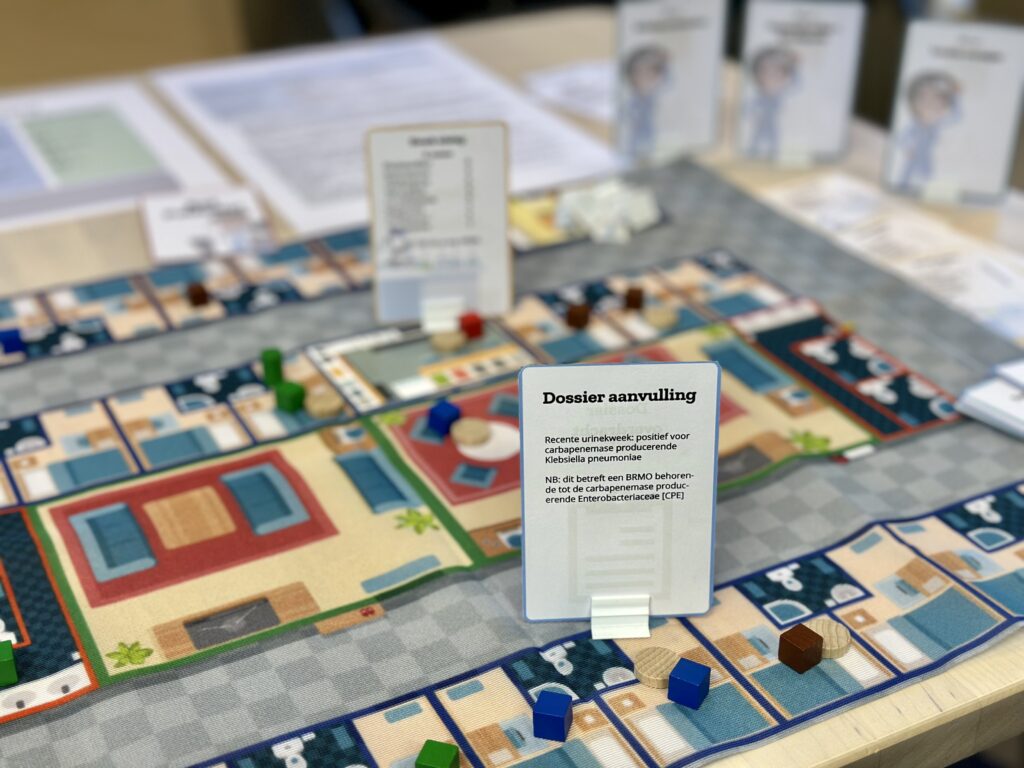
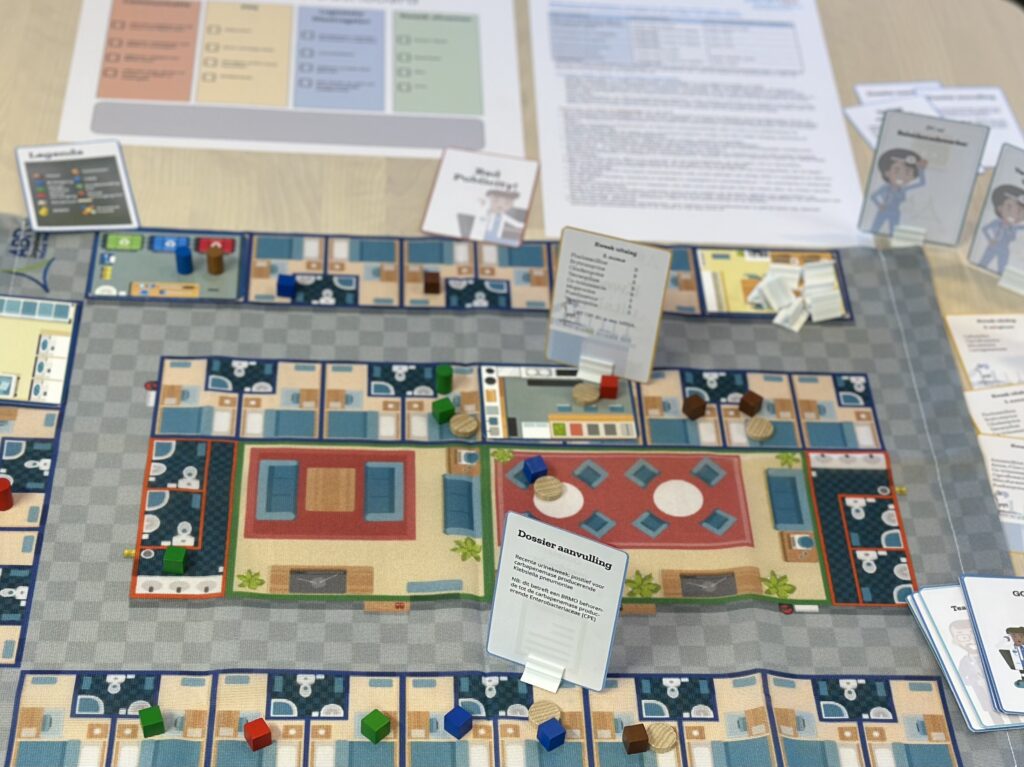


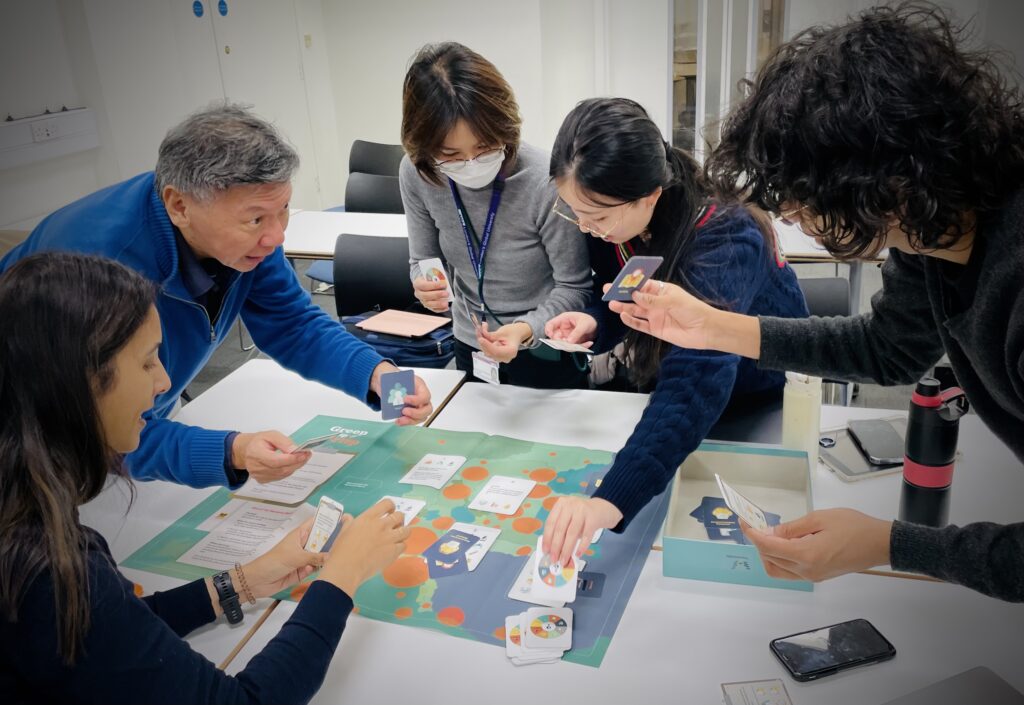
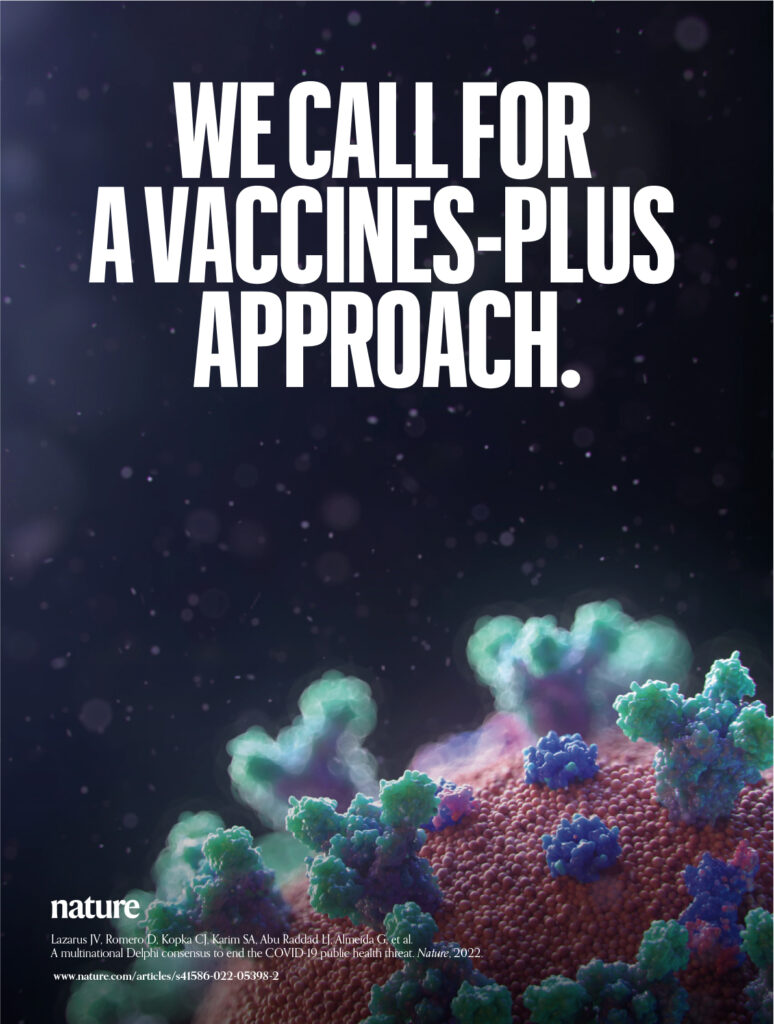
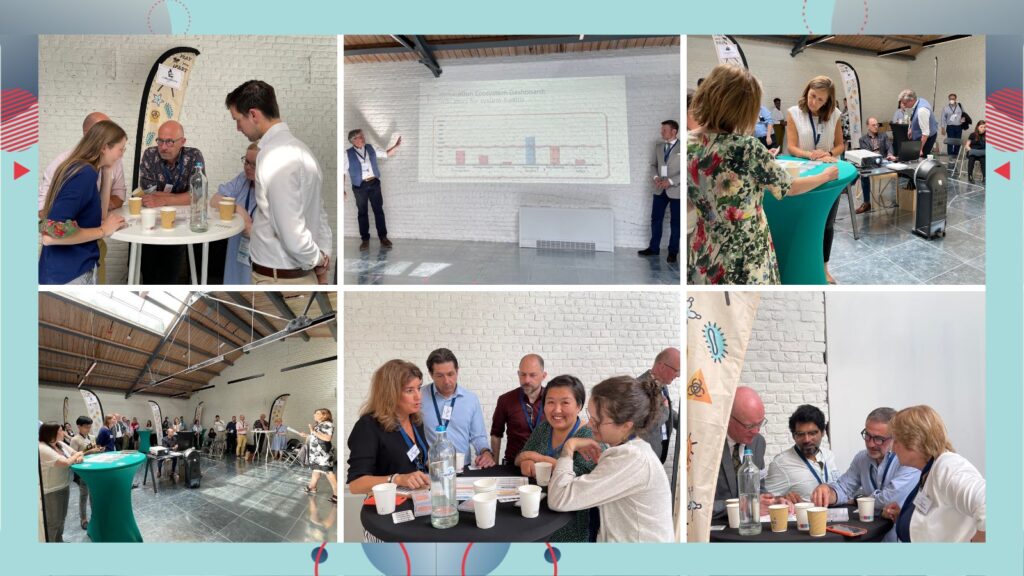
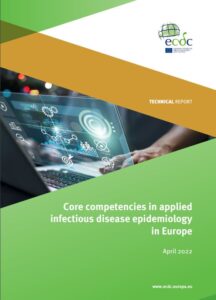
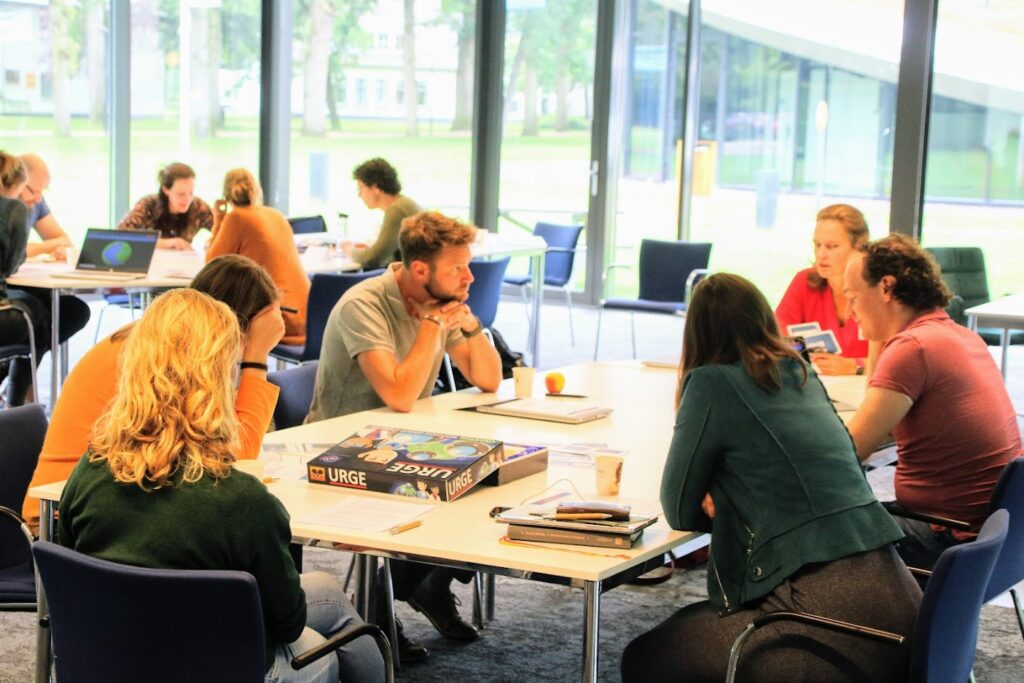



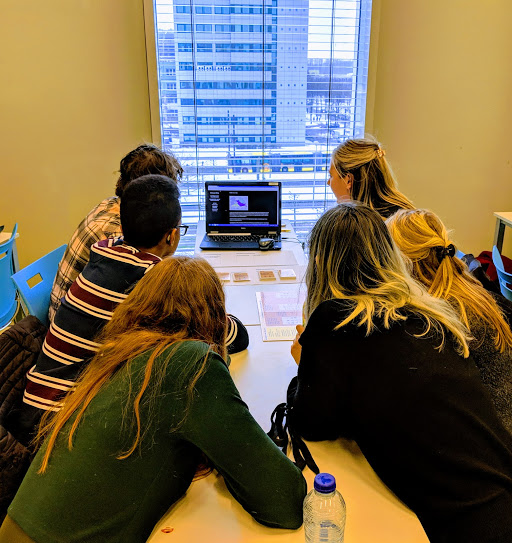

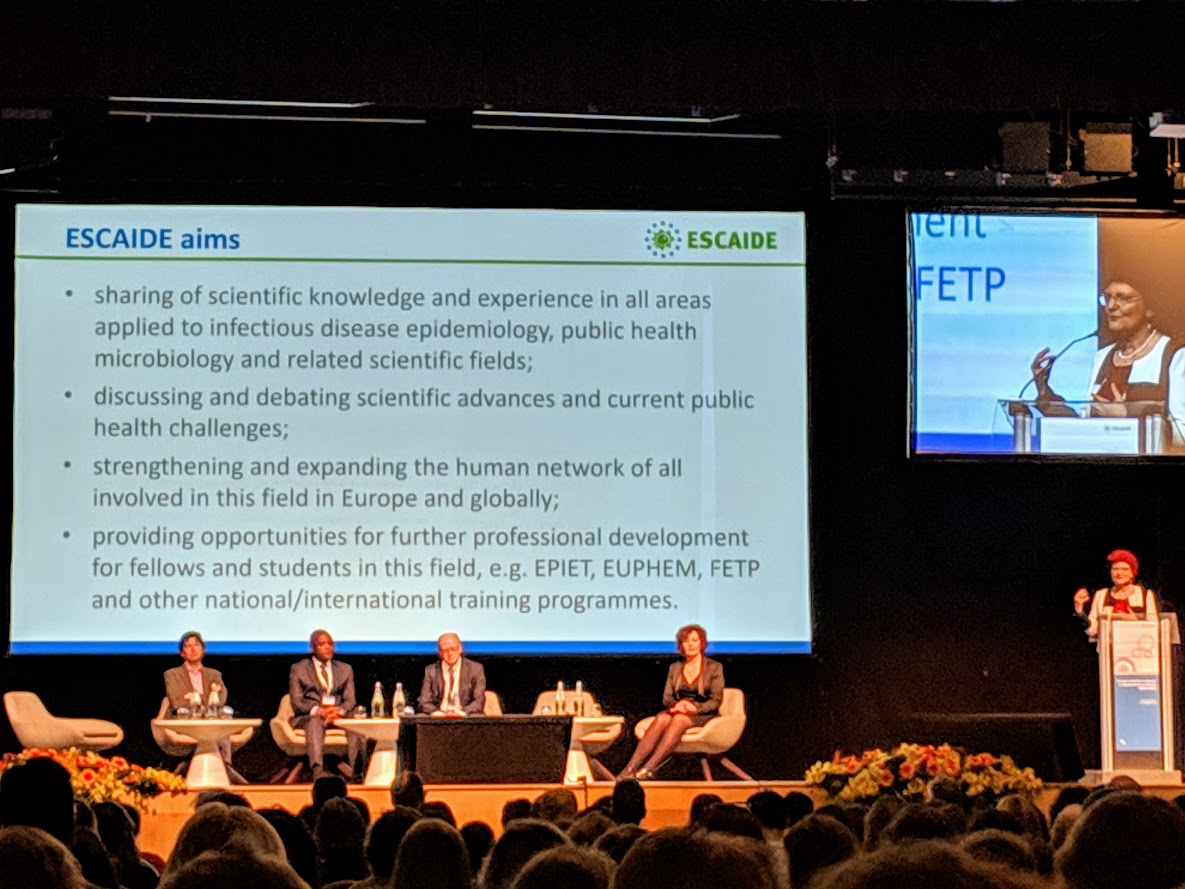
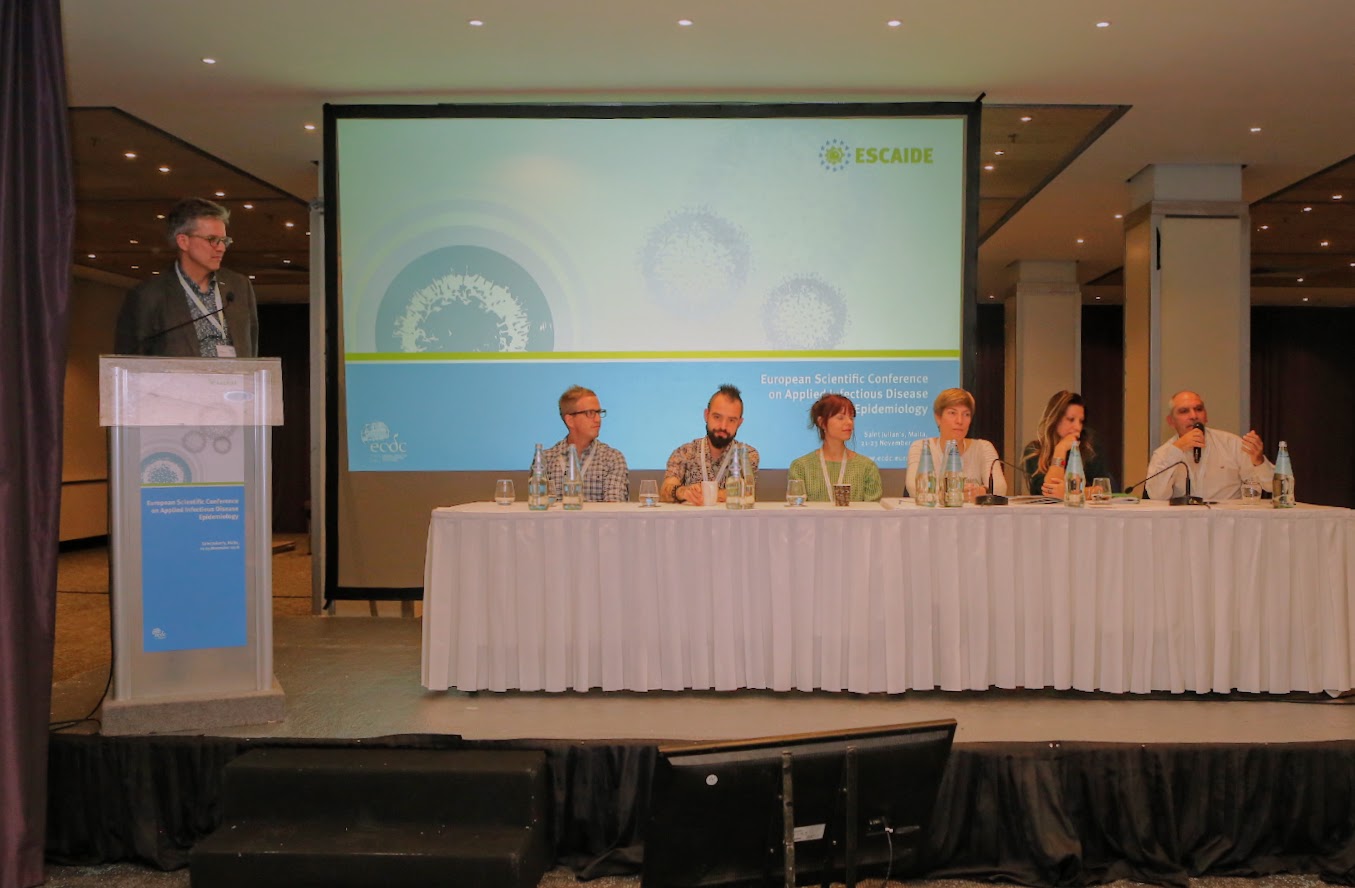
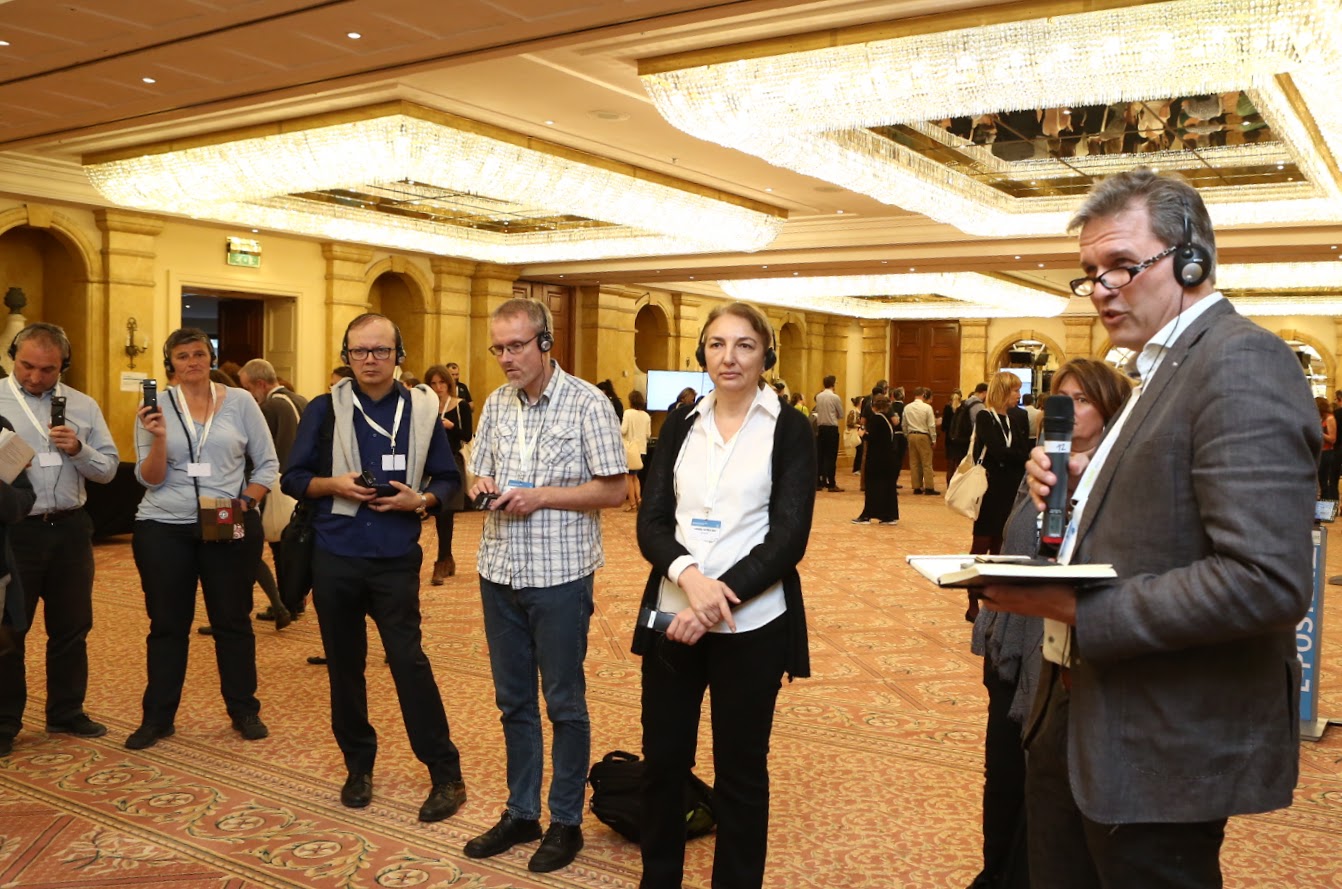 Poster Session 22 on Vaccine Effectiveness (see picture left) included 4 presentations on effectiveness of Pneumococcal Vaccines and one on seasonal influenza.
Poster Session 22 on Vaccine Effectiveness (see picture left) included 4 presentations on effectiveness of Pneumococcal Vaccines and one on seasonal influenza.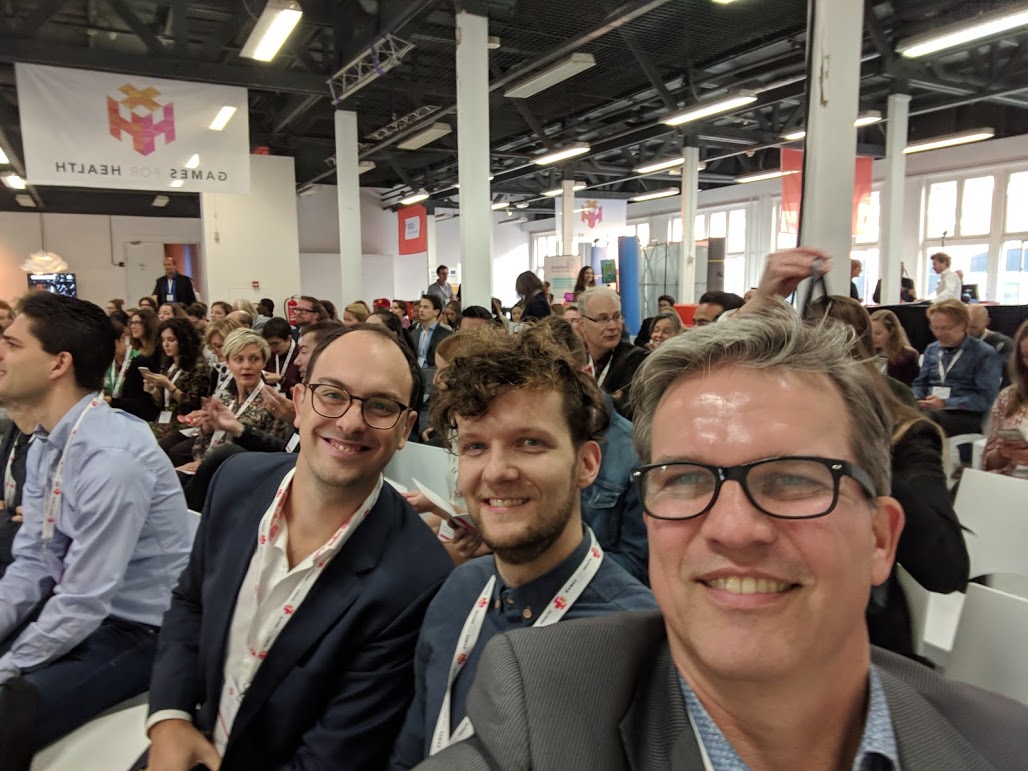
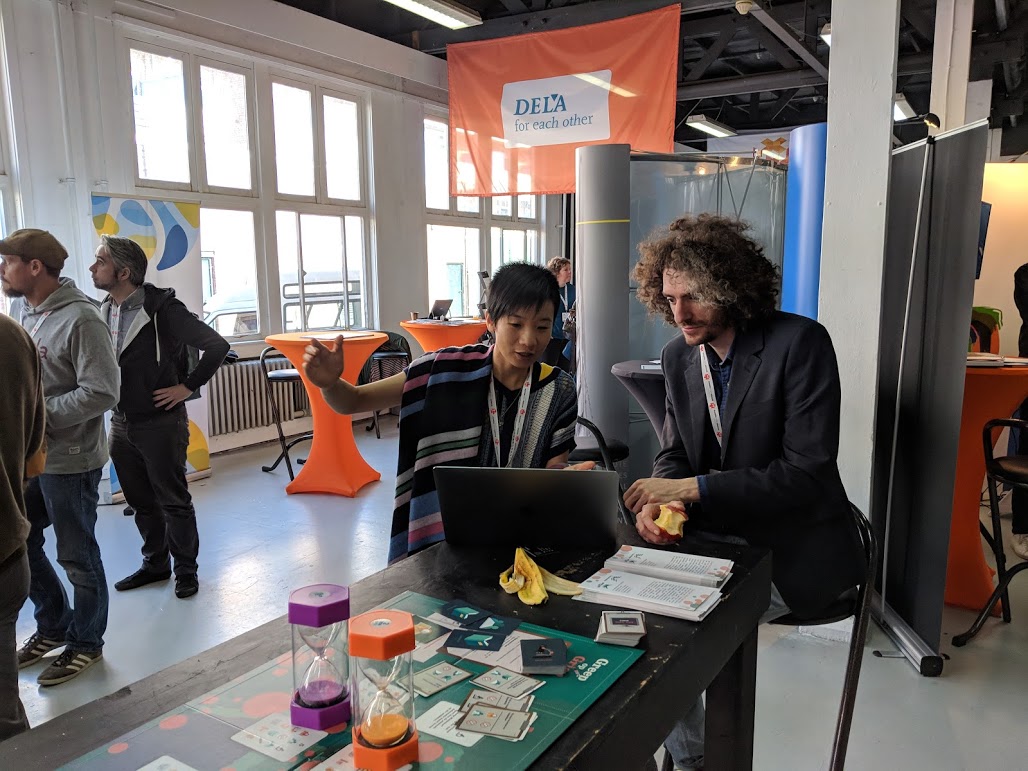
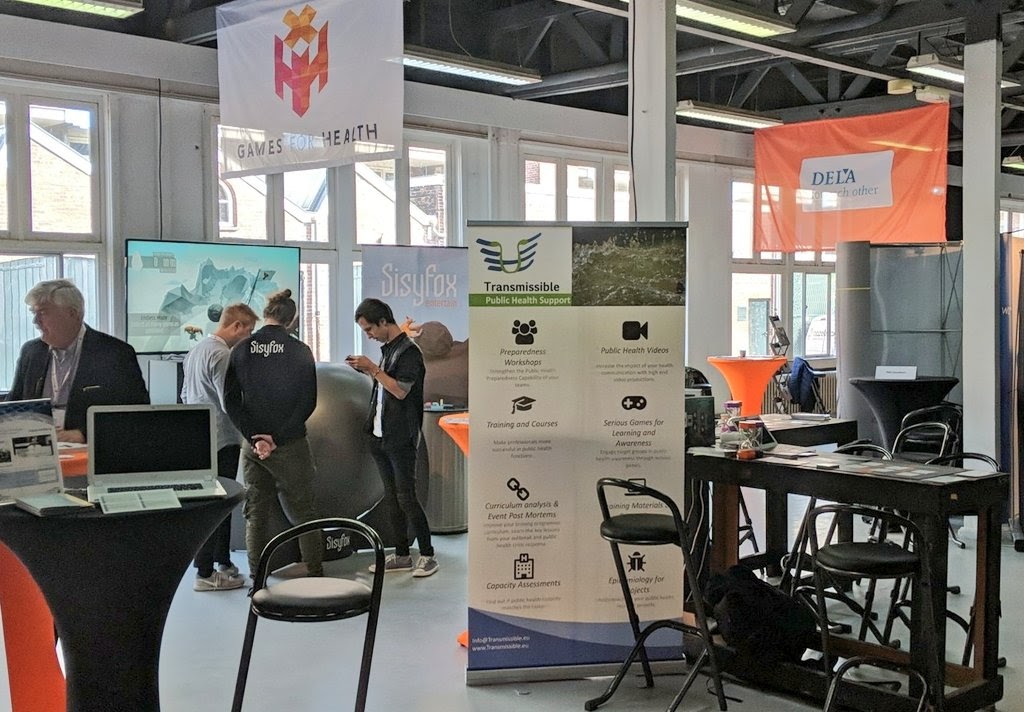
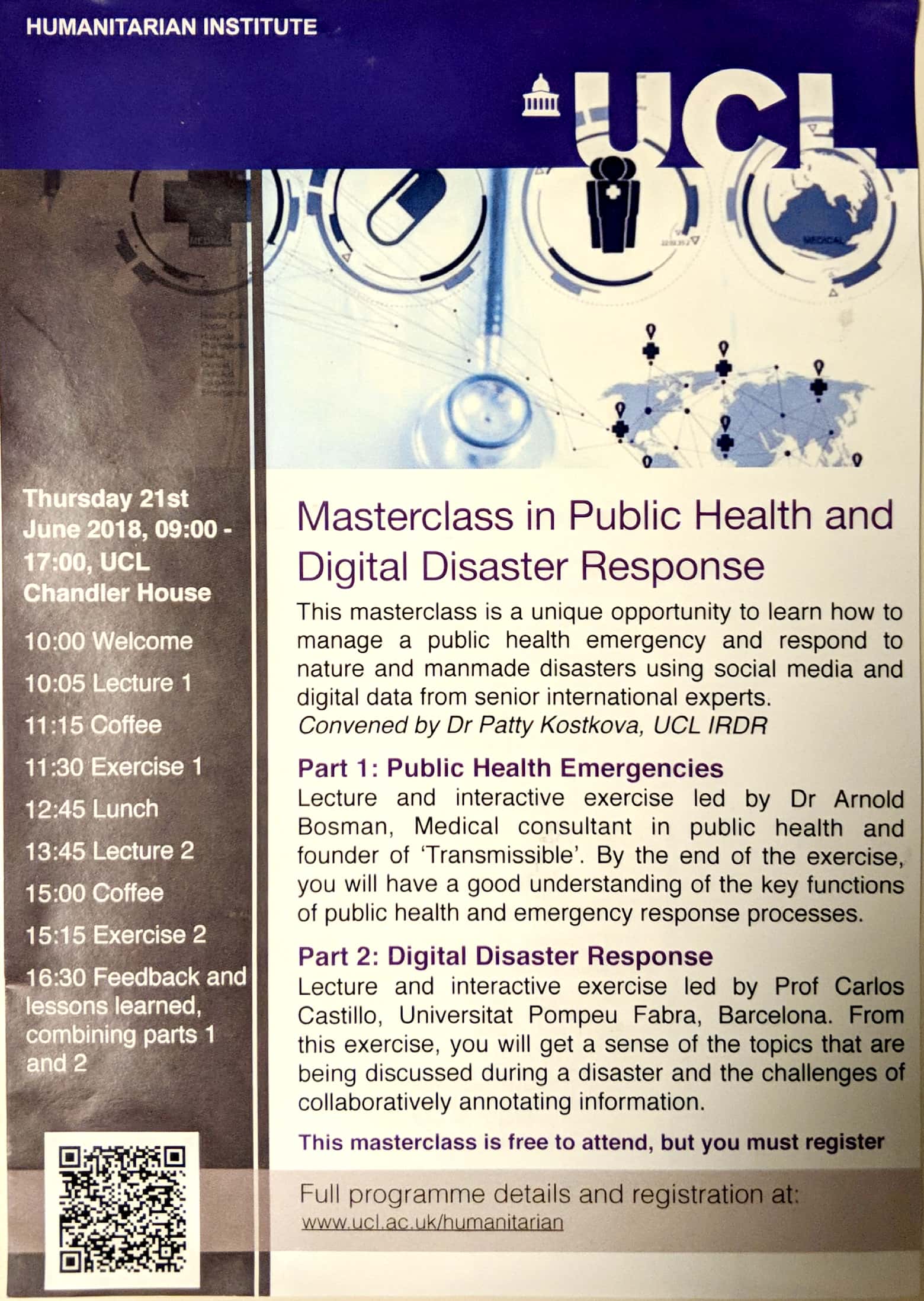 On 21 June 2018, University College London (UCL) organised a Masterclass on Digital Disaster Response. Participants brought a rich and wide range of professional backgrounds, a majority of which in public health and disaster response. Dr. Patty Kostkova had convened the event, and invited Arnold Bosman from Transmissible (NL) and professor Carlos Castillo from Pompeu University (ES) to present.
On 21 June 2018, University College London (UCL) organised a Masterclass on Digital Disaster Response. Participants brought a rich and wide range of professional backgrounds, a majority of which in public health and disaster response. Dr. Patty Kostkova had convened the event, and invited Arnold Bosman from Transmissible (NL) and professor Carlos Castillo from Pompeu University (ES) to present. On the 9th of May 2018, we celebrate the European Union. On this day, it was 68 years ago that Robert Schuman, the Luxembourg-borne French foreign minister presented a declaration that would become one of the foundations of the European Union. Together with Jean Monnet, he would draw up the Schuman-Plan for a United Europe with lasting peace.
On the 9th of May 2018, we celebrate the European Union. On this day, it was 68 years ago that Robert Schuman, the Luxembourg-borne French foreign minister presented a declaration that would become one of the foundations of the European Union. Together with Jean Monnet, he would draw up the Schuman-Plan for a United Europe with lasting peace.
 For the past six years, Syria’s children have been bombed, shot at and starved to death. They’ve seen loved ones killed or injured, right before their eyes. Their homes and schools reduced to rubble. Their families torn apart.
For the past six years, Syria’s children have been bombed, shot at and starved to death. They’ve seen loved ones killed or injured, right before their eyes. Their homes and schools reduced to rubble. Their families torn apart.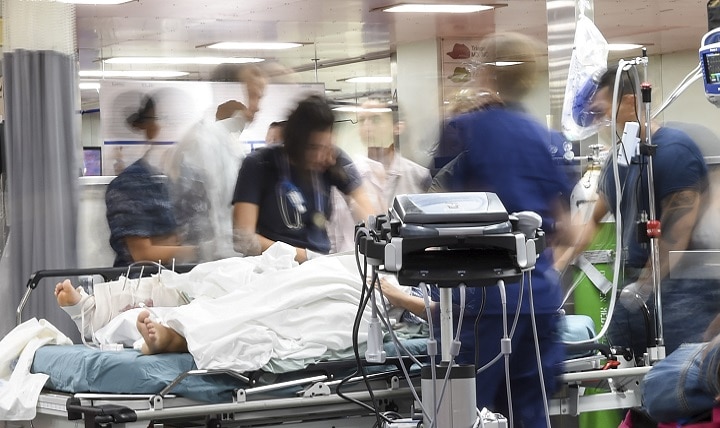 Influenza Escalates
Influenza Escalates A large group of people gets contaminated with a virulent pathogen, and regular treatment is ineffective. To make matters worse, the control measures are interrupted by increasing civil unrest. The Communicable Disease Control team of the Public Health Service 'Hollands-Midden', dared to engage in this scenario during a training workshop.
A large group of people gets contaminated with a virulent pathogen, and regular treatment is ineffective. To make matters worse, the control measures are interrupted by increasing civil unrest. The Communicable Disease Control team of the Public Health Service 'Hollands-Midden', dared to engage in this scenario during a training workshop. It was 167 years ago today....
It was 167 years ago today....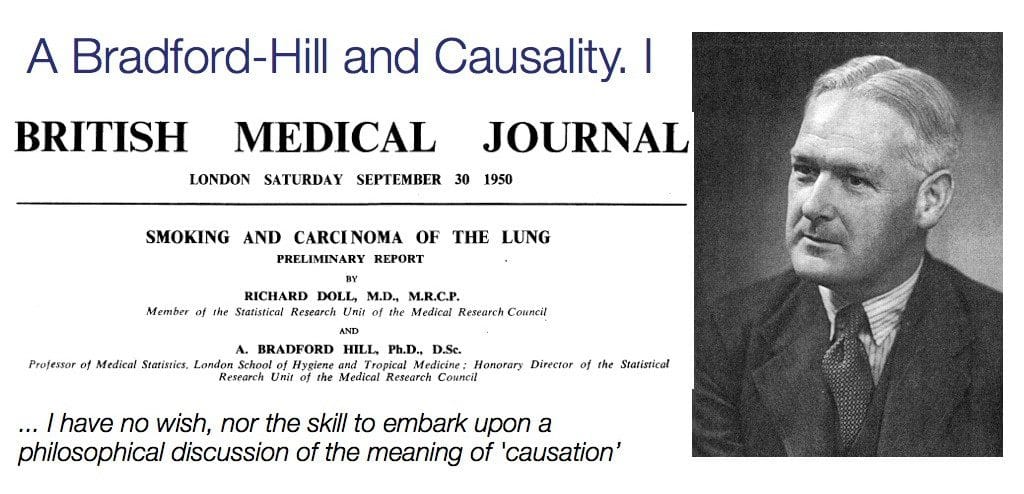 It was 120 years ago, today
It was 120 years ago, today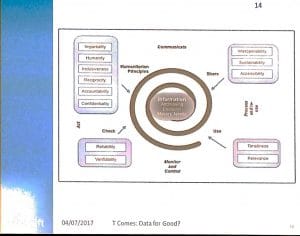
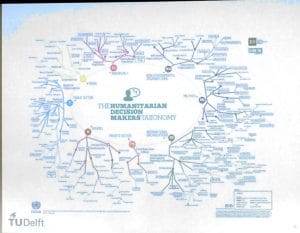 Developing new systems for humanitarian aid is a complex matter, and the worst thing one could do, is rolling out a new system during a crisis. Gomes illustrated this with an example from the 2014-2015 Ebola response.
Developing new systems for humanitarian aid is a complex matter, and the worst thing one could do, is rolling out a new system during a crisis. Gomes illustrated this with an example from the 2014-2015 Ebola response. It is already a year ago that Transmissible was established in the Netherlands. And since June 1, 2016, the little boy has learned to walk.
It is already a year ago that Transmissible was established in the Netherlands. And since June 1, 2016, the little boy has learned to walk. The Biovision Life Sciences Forum offers an interactive platform bringing together actors in research, innovation, partnerships and finance to debate existing and future health issues and how to address them. One of those topics is Trust in Vaccines: a Workshop on Thursday morning 6 April 2017, discussing three questions:
The Biovision Life Sciences Forum offers an interactive platform bringing together actors in research, innovation, partnerships and finance to debate existing and future health issues and how to address them. One of those topics is Trust in Vaccines: a Workshop on Thursday morning 6 April 2017, discussing three questions: